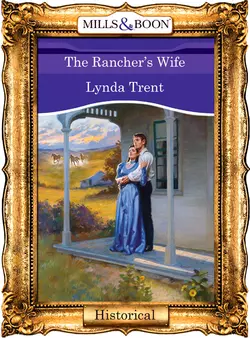The Rancher′s Wife

Lynda Trent
Тип: электронная книга
Жанр: Современная зарубежная литература
Язык: на английском языке
Стоимость: 152.29 ₽
Статус: В продаже
Издательство: HarperCollins
Дата публикации: 16.04.2024
Отзывы: Пока нет Добавить отзыв
О книге: ABANDONEDElizabeth Parkins had been left in the wilderness, along and destitute, by a man she′s promised to love, honor and obey. Now fate had led her to Brice Graham, who offered her fulfillment of all her dreams. But the price, she soon learned, would be her heart and soul… !BEREFTWhen Elizabeth Parkins rode into his life, Brice Graham saw a way out of the loneliness that haunted his days. Here was the wife of his heart, the true mother of his child. But would she be content to pretend they′d been together forever – or would she demand something more… ?